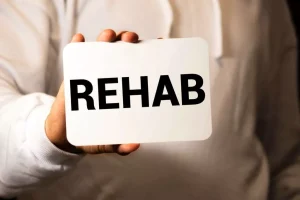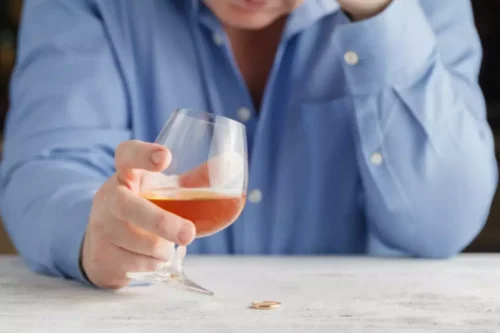To prevent becoming dehydrated, you should increase your fluid intake. Seek immediate medical help if you suspect someone is severely dehydrated (see symptoms of severe dehydration). Dehydration is usually caused by not drinking enough fluid to replace what we lose. The climate, the amount of physical exercise you are doing (particularly in hot weather) and your diet can contribute to dehydration. Drinking too much water too quickly can cause electrolyte imbalances, so take small sips and drink slowly. Electrolytes are charged minerals in the bloodstream, such as sodium, potassium, and calcium.
Here’s How to Really Avoid Alcohol Dehydration Symptoms
Electrolyte imbalance can exacerbate dehydration and worsen the unpleasant aftereffects of drinking alcohol, including headaches, low energy, muscle aches, and poor sleep. When you lose too much water without properly replacing it, you become dehydrated. Dehydration can cause mild symptoms like headache, dry mouth, dizziness, and fatigue, or severe issues like damage to the brain, heart, kidneys, and even death (1). Staying hydrated is essential for maintaining overall health and well-being. Whether you’re looking to quench your thirst after a workout, combat the heat or simply keep your body functioning optimally, the right hydrating drinks can make all the difference. Dehydration can cause anxiety, although this tends to be a mild effect that can be resolved with rehydration (restoring fluid).
- Drinking too much too quickly can affect breathing, heart rate, body temperature and gag reflex.
- Others, like loss of consciousness or slurred speech, may develop after a few drinks.
- Remember that list of things that makes alcohol-related dehydration worse?
How to stay safe during hot weather
If necessary, you can purchase oral rehydration solutions (ORS) from a pharmacy. As a guide, passing pale or clear-coloured urine (wee) is a good sign that you’re well hydrated. The best way to treat dehydration is to rehydrate the body by drinking plenty of fluids, such as water, diluted squash or diluted fruit juice. Hyponatremia sometimes affects athletes whose blood sodium level is reduced through sweat and then diluted by drinking large amounts of water.
- The more sweat you produce, the more evaporation there is, and the more you’re cooled off.
- And it takes a lot more time for the body to get rid of alcohol.
- These include times of illness (like when you have a fever), during and after exercise, in hot climates, and or when you are experiencing digestive issues like diarrhea and constipation.
- It impairs your kidneys’ ability to filter blood and makes them work harder.
Cucumber Water
The best way to ensure proper hydration is to drink plenty of water. If you are sick with a stomach virus and experience symptoms like diarrhea and vomiting it can be hard to keep down food and beverages. Your fluid losses may surpass your fluid intake which can increase the risk of becoming dehydrated. In addition, your fluid needs increase when you have a fever. Fever can increase the risk of dehydration by increasing fluid loss. Drinking water before, during, and after alcohol consumption can help prevent dehydration.
Drink an electrolyte solution or sports drink

The Alcohol Use Disorders Identification Test assesses whether your drinking habits indicate a risk of alcohol dependence. It impairs your kidneys’ ability to filter blood and makes them work harder. Alcohol also causes hormonal imbalances does alcohol dehydrate you that negatively affect kidney function. Alcohol-induced dehydration can also decrease reaction time, making it more challenging to respond quickly to unexpected situations, such as sudden stops while driving or avoiding obstacles.
As a result, they eventually need to drink more to notice the same effects they once did. Experts recommend avoiding excessive amounts of alcohol if you have diabetes or hypoglycemia. These effects might not last very long, but that doesn’t make them insignificant. Impulsiveness, loss of coordination, and changes in mood can affect your judgment and behavior and contribute to more far-reaching effects, including accidents, injuries, and decisions you later regret. Some of these effects, like a relaxed mood or lowered inhibitions, might show up quickly after just one drink. Others, like loss of consciousness or slurred speech, may develop after a few drinks.

Alcohol-induced mental health conditions
Consuming alcohol leads to dehydration and can affect several systems and functions in the body. It is important for a person to be aware of the signs and symptoms of alcohol-induced dehydration and the ways to avoid it. Dehydration can cause headaches, muscle aches, brain fog, and fatigue, and hydrating with water and electrolytes helps restore fluid balance and can minimize the unpleasant aftereffects of alcohol. The most common symptoms of alcohol dehydration include thirst, a dry mouth, headaches, muscle aches or cramps, fatigue, and dark-colored urine.

The main reduction is in the volume of intracellular fluid, but there will be a concomitant though much smaller reduction in extracellular fluid [39,40]. Contrary to popular belief, alternating alcoholic drinks and water will not help you avoid dehydration. But you can certainly ensure you are as hydrated as possible before consuming alcohol. You can also drink water before you go to bed to help replenish hydration levels. However, replenishing lost electrolytes is equally important. Without adequate electrolyte levels, water can’t enter cells and tissues, leaving you at risk of dehydration despite drinking water.
Risk factors

Lack of fluids can increase the risk of UTI and kidney stones. How long it takes to recover depends on many factors, including the level of dehydration, how much you drink, your age, and your overall health. For mild to moderate dehydration, it can take a few minutes to several hours to rehydrate. When you’re severely dehydrated, it can take several days for a full recovery. Caffeine can have mild diuretic effects (causing increased urine production).
Who is at risk from dehydration?
“The higher the alcohol content a drink has (or is absorbed in your body), the greater the diuretic and dehydration effect.” Between your Thursday night wine and your Saturday night cocktail, you have a fairly good sense of what kind of hangover you’re in for on Friday and Sunday mornings. But beyond the type of alcohol you’re imbibing, you might not realize how much dehydration enters into the hangover equation. Eating food before or during drinking can help slow down the absorption of alcohol into the bloodstream, which can reduce its dehydrating effects. Additionally, foods with high water content, such as fruits and vegetables, can help counteract the dehydrating effects of alcohol. Drinking 2–3 cups of coffee a day may be an acceptable practice to maintain moderate coffee consumption.